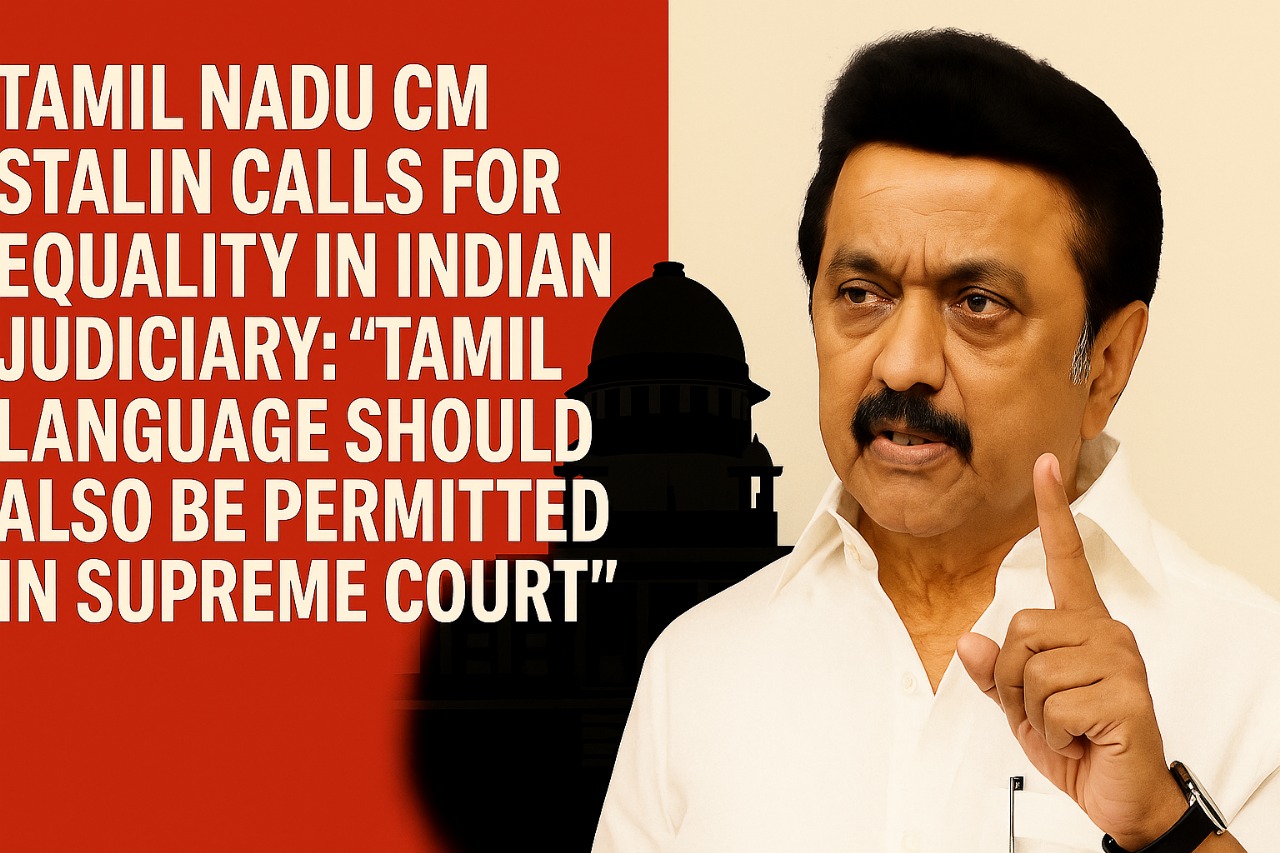Introduction
Tamil Nadu Chief Minister M.K. Stalin stoked the debate on language inclusion in India’s top courts on 16 June 2025 by calling for Tamil to be allowed as an argument and adjudication language in the Supreme Court. This appeal is based not just on national pride but on constitutional values of equality, federalism, and access to justice and Stalin calls for equality in indian judiciary
Background:
The Language Debate in the Indian Judiciary:
The Indian courts, particularly at the highest levels, function largely in English. Article 348(1)(a) of the Constitution requires Supreme Court and High Court proceedings to be conducted in English unless Parliament decides otherwise. Despite the guarantee under Article 350 that one may make representations in any of the languages employed in the Union or states, this has not moved to the courts yet.
Different states, particularly Tamil Nadu, have, over time, petitioned to use regional languages during High Court proceedings. Although Article 348(2) allows for the employment of Hindi or regional languages in High Courts with the assent of the president, Tamil Nadu’s petition to use Tamil in the Madras High Court took a long time, even with legislative support from the state.
Stalin’s request of equality in indian judiciary entails a constitutional and policy change. The inclusion of Tamil in the Supreme Court would necessitate:
- Legislative Amendment:
Alteration of Article 348 or parliamentary legislation under the current provisions.
- Administrative Adaptation:
Appointment of judges and lawyers proficient in regional languages and the necessary facilities for interpretation and translation.
- Technological Support:
Equipment for on-the-spot translation and publication of judgements in more than one language.
Stalin pointed out that already more than 37,000 judgments have been translated into local languages, 2,559 of them into Tamil, indicating the judiciary’s realization of the value of access to language. Yet, translation is not a replacement for argumentation and adjudication in local languages.
Federalism and Access to Justice
Stalin’s appeal also invokes cooperative federalism, the notion that both the Union and states have sovereign powers, and that diversity should be protected, not stifled. Permitting regional language usage in apex courts can help mitigate the disaffection felt by non-English speaking litigants, particularly in linguistically vibrant states such as Tamil Nadu.
It also improves access to justice, a constitutional guarantee under Article 39A of the Directive Principles. Language must not act as a barrier to redress.
Conclusion
M.K. Stalin’s suggestion is not a political or cultural statement but a threat to the judicial establishment that benefits English-speaking elites. Although there are practical and constitutional barriers, the notion matches India’s pluralistic tradition. For an inclusivist legal system, the Supreme Court will have to open its doors linguistically finally to all Indian citizens, including Tamil-speaking people.
This appeal could be the starting point for recharting the linguistic landscape of Indian judicial discourse, reaffirming the precept that justice should not merely be done but must also be seen.
About the Author
Agnimitra is a law student at the Department of Law, Hazra Campus, Calcutta University, Kolkata, with a growing passion for legal writing and research. Deeply interested in Intellectual Property Law, International Law, and issues related to Women and Child Safety, Agnimitra enjoys exploring how the law modernizes itself to the changing times of society. Whether it’s through writing articles or diving into legal debates, Agnimitra is always eager to understand and share the evolving nuances of the legal world.

